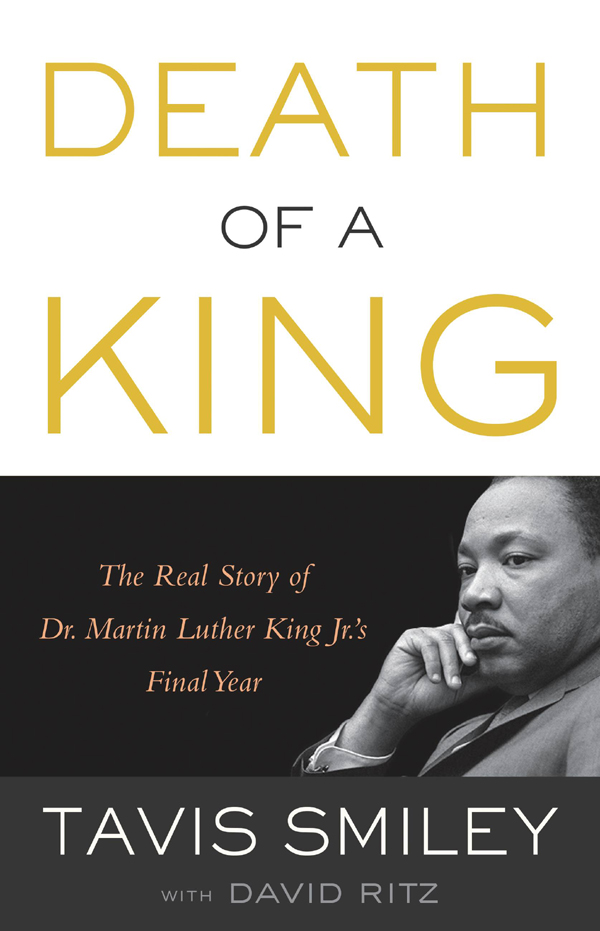
Death of a King
The Real Story of Dr. Martin Luther King Jr.'s Final Year
کتاب های مرتبط
- اطلاعات
- نقد و بررسی
- دیدگاه کاربران
نقد و بررسی

September 1, 2014
"In his last year, what kind of man had Martin Luther King, Jr. become?" is the question Smiley (What I Know for Sure) raises, asserting that he has "come to firmly believe that, in a critical way, is misunderstood." The book focuses for the most part on the year between King's April 4, 1967 anti-war speech in New York and his April 4, 1968 assassination in Memphis, but also passes through such earlier landmarks as the Montgomery bus boycott and the March on Washington. Snippets from King's sermons, speeches, and press conferences abound, along with tidbits from the media coverage of the time. Smiley also covers King's marital problems, depression, smoking and drinking habits, musical tastes, and even his (hypothetical) internal thoughts. Smiley's referring to his subject throughout as "Doc," which was King's nickname among his "most trusted colleagues," here comes across as distracting. It is, however, typical of the book's chatty prose, which stumbles when attempting weighty references ("Like Jesus in the garden of Gethsemane") or lyricism ("The sea sparkles with moonlight.") The answer to Smiley's opening question appears to be that King became deeply concerned with peace and poverty, no great revelation for anyone even passingly familiar with the history of those years. But Smiley's efforts to show the man who was his hero since he was a young boy adds a dimension to the reams of writing about Dr. King. Agent: David Vigliano and Thomas Flannery Jr., Vigliano Associates

August 15, 2014
A reverential look at Martin Luther King Jr.'s last agonizing year that does not disguise the flaws of a saint. The humanity and moral conviction of this great civil rights leader emerge in talk show host Smiley (Fail Up: 20 Lessons on Building Success from Failure, 2011, etc.) and co-writer Ritz's poignant account of King's final struggle. In the introduction, Smiley asserts that King's "martyrdom has undermined his message" and that during the last year of his life, the Nobel Prize winner returned to his original message of nonviolence with all the conviction of his preacher's soul. The author catches up with the beleaguered minister as he is headed to Manhattan's Riverside Church on April 4, 1967, for what would be a definitive and divisive sermon denouncing the Vietnam War-indeed, he attacks "the greatest purveyor of violence in the world today," the American government. King-whom Smiley refers to as "Doc," since that is what his colleagues called him, and it takes him off his pedestal-was excoriated widely for his anti-war stance not only by the administration of President Lyndon Johnson (with whom King had worked closely for the passage of several civil rights bills in Congress), but especially by black critics like Carl Rowan and leading newspapers for introducing "matters that have nothing to do with the legitimate battle for equal rights in America." Yet King believed that black soldiers dying for a senseless war in Vietnam was immoral, and he continued to insist in his speeches that "the evils of racism, economic exploitation and militarism are all tied together." Depressed by the rioting in cities, drinking heavily, guilt-ridden by his affairs and plagued by death threats, King nonetheless found in poverty the message that drove him finally to stand with the Memphis sanitation workers in his final hours. An eloquent, emotional journey from darkness to light.
COPYRIGHT(2014) Kirkus Reviews, ALL RIGHTS RESERVED.

August 1, 2014
As he was growing up, Smiley, a best-selling author and award-winning broadcaster, was profoundly influenced by civil rights leader Dr. Martin Luther King Jr. Drawing on interviews with friends and major civil rights figures from Harry Belafonte to Andrew Young to Jesse Jackson as well as biographers Taylor Branch and Clayborne Carson, Smiley takes a fresh look at the 365 days leading up to King's assassination on April 4, 1968. Smiley recalls the threats and denunciations King faced, the obstacles he overcame, and the internal struggles he endured as the civil rights leader expanded his mission to human rights advocacy. Speaking out against the Vietnam War, King came under severe criticism from the Left and the Right. Smiley recounts King's growing concerns about the strains on his marriage, tensions among the ranks of civil rights leaders, and growing dissent fueled by black militants critical of nonviolent tactics. Written as a narrative in the present tense, Smiley's book aims to flesh out the man behind the now idealized image of King that has weakened appreciation of the depth of his personal struggle.(Reprinted with permission of Booklist, copyright 2014, American Library Association.)

























دیدگاه کاربران